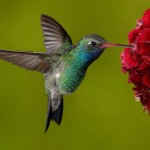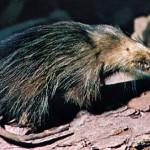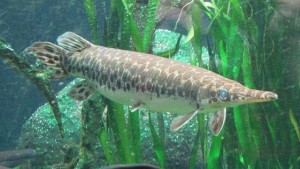• In Cuba there are more than 14,000 species of animals.
Indeed, they know much more than 14,000 species of Cuban fauna, although usually the ones we see in daily life are imported.
• In Cuba lives the world’s smallest bird, the bee hummingbird or bird fly.
The hummingbird (Mellisuga elenae) is the smallest bird in the world and is about 6 cm in length and weighs a maximum average about 2 grams. Just live in Cuba.
• In Cuba lives the amphibian world’s smallest.
It pygmy frog or toad (Sminthillus limbatus) measuring less than 12 mm in length.
• In Cuba lives the world’s smallest bat that also is considered the child of mammals.
This is the butterfly or bat Nystiellus lepidus, which weighs just 3.2 g measures about 3 cms.
• The almiquí, to the point of extinction, has poisonous saliva.
Indeed, the almiquí (solenodon cubanus) has as a characteristic of the fossil mammals poisonous saliva. They thought it was extinct since the late nineteenth century but was not seen in 1974 and 75 were captured three copies.
• There is evidence that monkeys lived in Cuba.
The paralouatta varonai considered the largest Antillean monkeys only lived in Cuba as demonstrated by archaeological finds. It is unknown when he disappeared.
• That in our country live jutía 13 species of which some only live in certain keys .
Described 13 varieties of jutías in Cuba, some with a very restricted habitat making them endangered. The jutía cabrera only lives in Anna Maria Key, the Key Majá garrido, the rat jutía and sanfelipensis Cayo Fragoso Cayo Juan Garcia.
• The jutía dwarf is the smallest of all capromydes genus in the world.
Within the genus to which they belong capromydes hutias representative jutía smaller dwarf capromydes nana that only lives in Cuba.
• There is evidence that the species lives in Viñales mollusc world’s oldest.
Viana is the living calcifolio regina or glued to the wooded hills and rocks to feed the fungus from them.
• The manjuarí is considered a living fossil fish has body and reptilian head.
The manjuarí, Atractosteus tristoechus, is a fish with special features, has a head like reptiles and fish body, its flesh is edible, but their eggs are poisonous.
Sources: FaunadeCuba/InternetPhotos/www.theCubanHistory.com
La Fauna de Cuba/ Arnoldo Varona, Editor
www.theCubanHistory.com
DE LA FAUNA CUBANA
•En Cuba existen más de 14000 especies de animales.
Efectivamente, se conocen mucho más de 14000 especies de la fauna cubana, aunque la que habitualmente vemos en la vida diaria es importada.
•En Cuba vive el pájaro más pequeño del mundo, el zunzuncito o pájaro mosca.
El zunzún (mellisuga elenae) es la más pequeña de las aves del mundo y mide alrededor de 6 cm de longitud como máximo y pesa como promedio alrededor de 2 gramos. Sólo vive en Cuba.
•En Cuba vive el anfibio más pequeño del mundo.
Es la rana pigmeo o sapito (sminthillus limbatus) que mide menos de 12 mm de longitud.
•En Cuba vive el murciélago más pequeño del mundo que a la vez se considera el menor de los mamíferos.
Se trata del Nystiellus lepidus o murciélago mariposa, que solo pesa 2-3 g y mide alrededor de 3 cms.
•El almiquí, a punto de extinción, tiene la saliva venenosa.
Efectivamente, el almiquí (solenodon cubanus) posee como característica de los mamíferos fósiles una saliva venenosa. Se pensó que estaba extinguido pues desde fines del siglo XIX no se veía pero en 1974 y 75 se capturaron 3 ejemplares.
•Existen evidencias de que en Cuba vivieron monos.
El paralouatta varonai considerado el mayor de los monos antillanos sólo vivía en Cuba según se ha demostrado por hallazgos arqueológicos. Se desconoce cuando desapareció.
•Que en nuestro país habitan 13 especies de jutía de las cuales algunas solo viven en determinados cayos.
Se han descrito 13 variedades de jutías en Cuba, algunas con un hábitat muy restringido lo que las hace peligrar. La jutía cabrera solo vive en el Cayo Ana María, la garrido en Cayo Majá, la jutía rata en Cayo Fragoso y la sanfelipensis en Cayo Juan García.
•La jutía enana es la más pequeña de todos los del género capromydes en el mundo.
Dentro del género capromydes al cual pertenecen las jutías el representante más pequeño es la jutía enana, capromydes nana que solo vive en Cuba.
•Se ha comprobado que en Viñales vive la especie de moluscos más antigua del mundo.
Se trata de la Viana regina o calcifolio que vive pegada a los mogotes y rocas para alimentarse del hongo de las mismas.
•El manjuarí es considerado un fósil viviente y tiene cuerpo de pez y cabeza de reptil.
El manjuarí, atractosteus tristoechus, es un pez con características especiales, tiene cabeza similar a los reptiles y cuerpo de pez, su carne es comestible pero sus huevos son venenosos.
Sources: FaunadeCuba/InternetPhotos/www.theCubanHistory.com
La Fauna de Cuba/ Arnoldo Varona, Editor
www.theCubanHistory.com



 Summary of the CUBAN FAUNA * Un sumario DE LA Fauna Cubana.
Summary of the CUBAN FAUNA * Un sumario DE LA Fauna Cubana.


